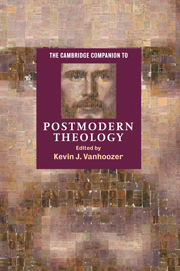16 - Holy Spirit and Christian spirituality
from Part 2 - Christian doctrine in postmodern perspective
Published online by Cambridge University Press: 28 May 2006
Summary
The Spirit's completion of Christ's work is no longer to be seen epistemologically, as a supplement or extension to the teaching of Christ, or even as that which makes it possible to hear and receive the Word. It is, rather, a completion in terms of liberation and transformation: it is gift, renewal and life. It is not possible to speak of the Spirit in abstraction from the Christian form of life as a whole: Spirit is “specified” not with reference to any kind of episodic experience but in relation to the human identity of the Christian. The question “Where, or what, is the Holy Spirit?” is not answered (as it might be by Luke) by pointing to prophecy and “charismata” and saying, “Spirit is the agency productive of phenomena like this.”
How then is it answered? Perhaps not at all. The theological quest which is preoccupied with identifying the distinctive quality or work of the Spirit has so often, as Hanson points out, produced only the most sterile abstractions. And there is at least in eastern Christian thought a sense that the “face” of the Holy Spirit is not there for us to see. If what we are speaking of is the agency which draws us to the Father by constituting us children, we are evidently speaking of an agency not simply identical with “Father” or “Son,” or with a sum or amalgam of the two. That perhaps is obvious, or even trivial, but it may be that no more can be said of the Spirit’s distinctiveness.
- Type
- Chapter
- Information
- The Cambridge Companion to Postmodern Theology , pp. 269 - 290Publisher: Cambridge University PressPrint publication year: 2003
- 2
- Cited by

